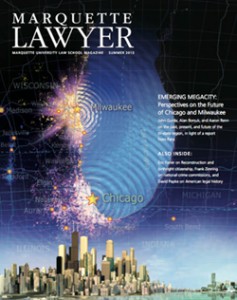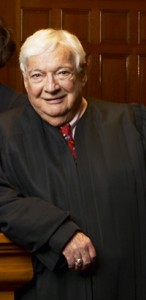Clinton, Ryan Do Well in Opening Round of 2016 Presidential Polling for Wisconsin
Is it 2016 yet? No, but daily news reports and, even more so, any glimpse into political maneuvering nationwide clearly show that a lot of work is already going into laying groundwork for the next race for president. Marquette Law School Poll results released Tuesday join in the early going, showing that former Secretary of State Hillary Clinton is at a strong advantage in Wisconsin among potential Democratic candidates, while the Republican field is pretty wide open. That said, Wisconsin Rep. Paul Ryan drew the most support among Republicans in Wisconsin.
Charles Franklin, director of the poll and newly-named professor of law and public policy at the Law School, said the purpose of the presidential questions at this point wasn’t to try to predict what will happen in 2016 in Wisconsin. Rather, he said, it is to begin building a picture of how the race will evolve.
That said, the poll found that 27% of those who said they were Republican or lean Republican named Ryan as their preferred candidate. Florida Sen. Marco Rubio was the choice of 21%, Wisconsin Gov. Scott Walker drew 16%, and New Jersey Gov. Chris Christie was picked by 11%. Those under 10% included Kentucky Sen. Rand Paul (7%); former Florida Gov. Jeb Bush (5%); and Louisiana Gov. Bobby Jindal (1%).
Clinton was the preference of 62% of Democrats and those who said they lean Democratic. Vice President Joe Biden was the choice of 13%. Drawing less than 10% were Massachusetts Sen. Elizabeth Warren (5%); New York Gov. Andrew Cuomo (4%); Massachusetts Gov. Deval Patrick (2%); Maryland Gov. Martin O’Malley (1%); and Virginia Sen. Mark Warner (1%).


